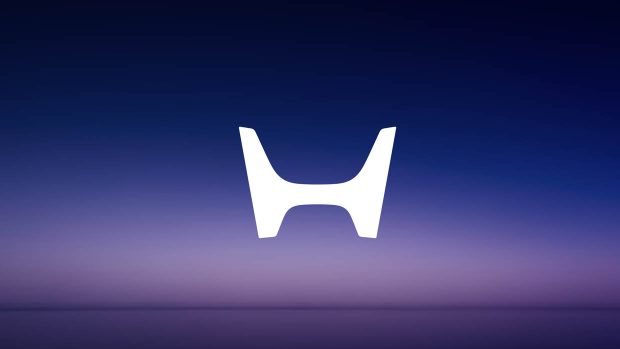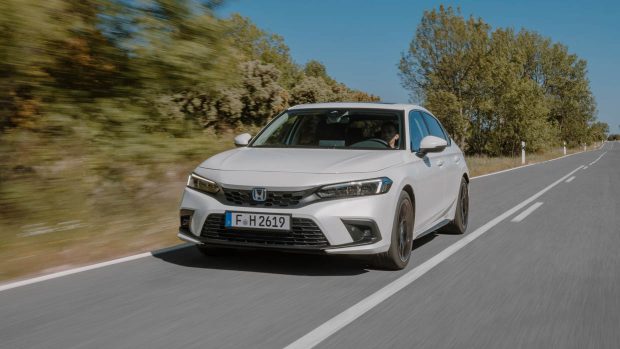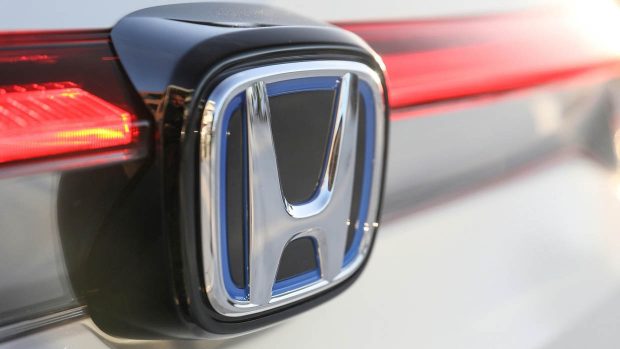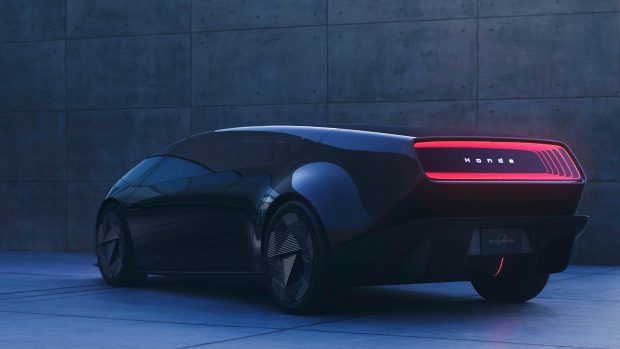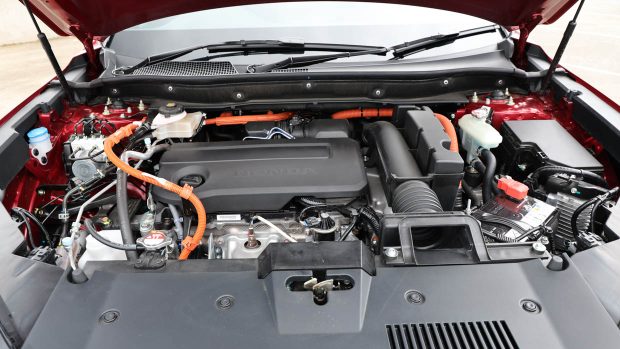-
Car Reviews
- All reviews
- Midsize SUVs
- Small cars
- Utes
- Small SUVs
- Large SUVs
- Large cars
- Sports SUVs
- Sports cars
- Vans
Latest reviews
- Car News
-
Car Comparisons
Latest comparisons
- Chasing Deals
Hybrids to underpin Honda emissions strategy as it prepares to offer first Australian electric model
Honda will rush more affordable hybrids to Australia and bring electric models as quickly as possible as it races to meet the Federal Government’s proposed New Vehicle Efficiency Standard (NVES).
In an early analysis by the Motor Trades Association of Australia, Honda was identified as one of the local importers facing “major changes” to its product offering and “high difficulty” meeting the proposed 58g/CO2 passenger vehicle emissions target by 2029.
However, Honda Australia Chief Operating Officer Carolyn McMahon told assembled media at its Accord eHEV RS launch last week that the brand welcomed the NVES.
“Like every other OEM we’ve been watching that intently and working with our parent company to see what impact that will have for us,” she said.
“Our strategy is very much a stepping stone from electric hybrid technology through then to full battery electric vehicles. We’ll be interested to see what that demand does once the new program is in place, and very interested to see how, as a country and as an industry, we deal with the required infrastructure in order to meet the new program.”
McMahon said hybrids would underpin Honda’s near-term emissions reduction strategy.
After a flurry of new product launches in the last 18 months, Honda now offers hybrid variants across its entire range – and said local sales are now 40 percent hybrid.
“What we’re seeing is a really good take up of hybrid at the moment,” said McMahon. “Many people feel comfortable stepping from ICE (internal combustion) to hybrid before they step into battery electric.”
The brand plans to ‘trickle’ its eHEV hybrid technology into lower-spec variants.
“You’ll start to see more affordable, more accessible hybrid technology come through the line-up,” said McMahon.
McMahon said the brand was working on bringing electric Hondas to Australia, but was coy on what ones and when. Electric models will arrive in Australia “sooner” than 2028, said McMahon.
At the 2024 Consumer Electronics Show (CES) in Las Vegas, Honda revealed two electric concepts built on its forthcoming Zero Series new purpose-built EV architecture. The platform is expected to be launched in 2026.
In 2022, Honda announced it would bring 30 new electric models to market globally and manufacture two million EVs per year by 2030.
Rivals Toyota and Subaru recently introduced their first electric models to Australia, and Nissan Australia has pledged to sell the electric Ariya SUV alongside the existing Leaf EV. Honda sells the HR-V-based eNy1 electric small SUV in the UK and two similar models in China; while in the USA there’s the Prologue, an electric SUV based on a General Motors EV architecture.
Honda never imported the retro-styled small electric E hatch into Australia.
“We’re working closely with Honda Motor … once the (NVES) legislation goes through we’ll then adjust our line-up depending on what the final fall looks like,” said McMahon.
Meanwhile McMahon told Chasing Cars plug-in hybrids were not on the Honda Australia agenda. Honda sells a CR-V PHEV in Europe with 82km of claimed WLTP electric-only range, but it’s not on Honda Australia’s radar. “We don’t have any plans for plug-in hybrid for the Australian market,” she said.
Honda is currently enduring a lower volume chapter of its 55-year Australian story, selling 13,734 vehicles in 2023. In 2019, it sold 43,868 cars in Australia, and 51,525 in 2018. In the time since, it has struggled with pandemic-related supply issues, but also growing pains from its controversial switch to an agency dealer model.
The model fixes the price of new Hondas nationwide, eliminating haggling, but also turning dealers into mere vendors. Honda keeps a greater share of the vehicle’s profit, and in turn looks after inventory. McMahon said the model was working for the brand.
Honda sales for Q1 2024 were 4683, an increase of 18.9 percent compared to the same period last year.
Latest news
About Chasing cars
Chasing Cars reviews are 100% independent.
Because we are powered by Budget Direct Insurance, we don’t receive advertising or sales revenue from car manufacturers.
We’re truly independent – giving you Australia’s best car reviews.
